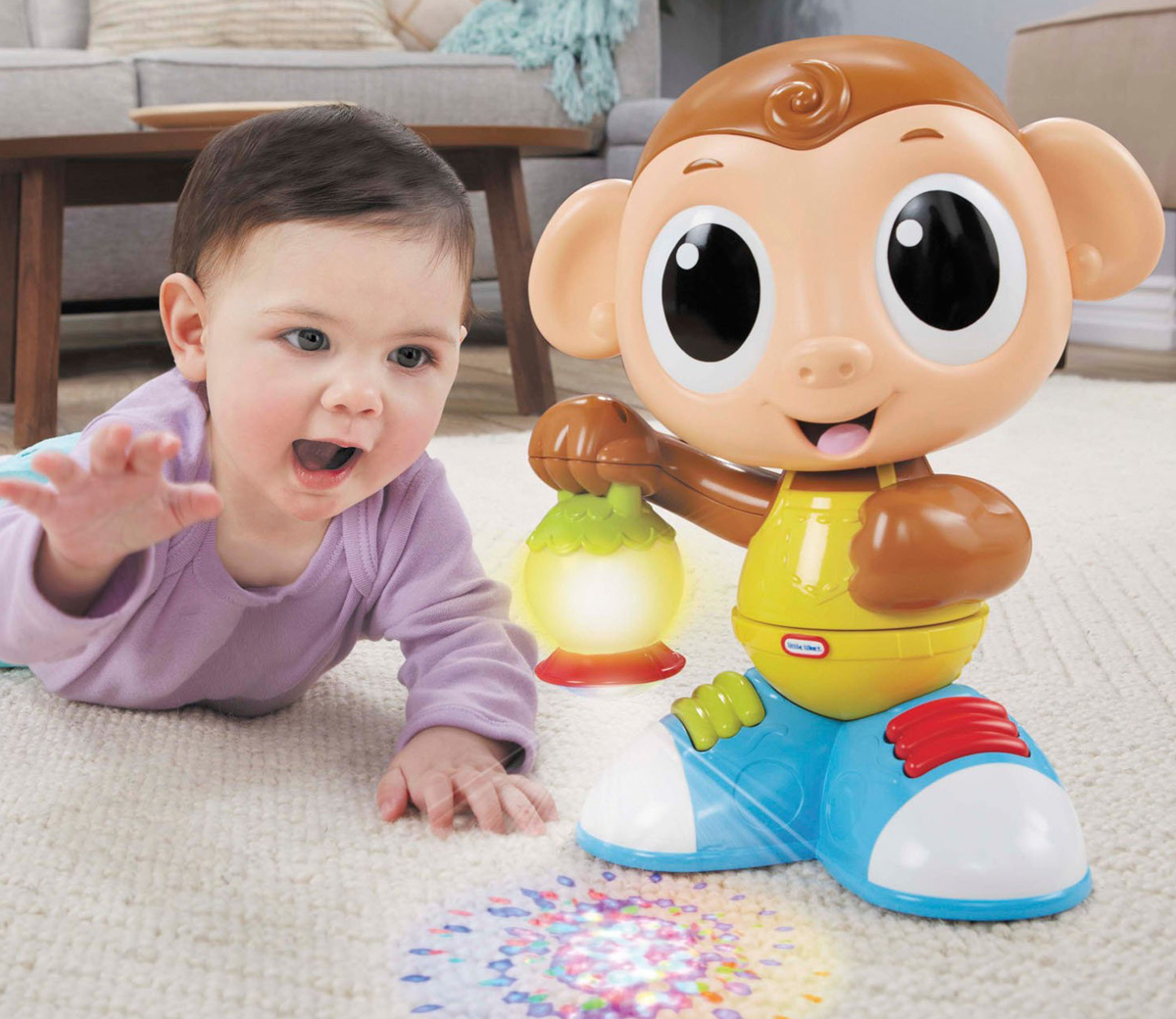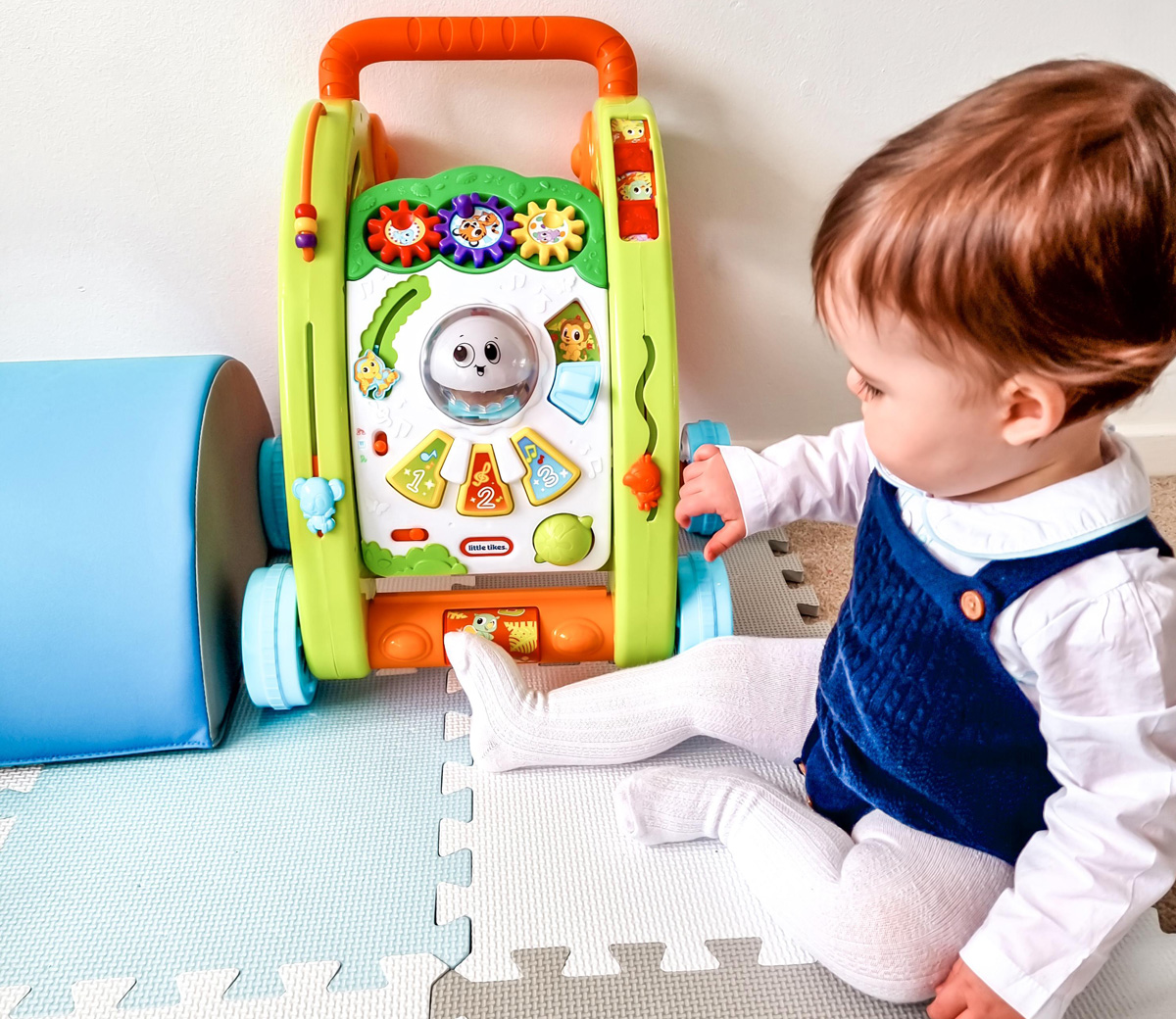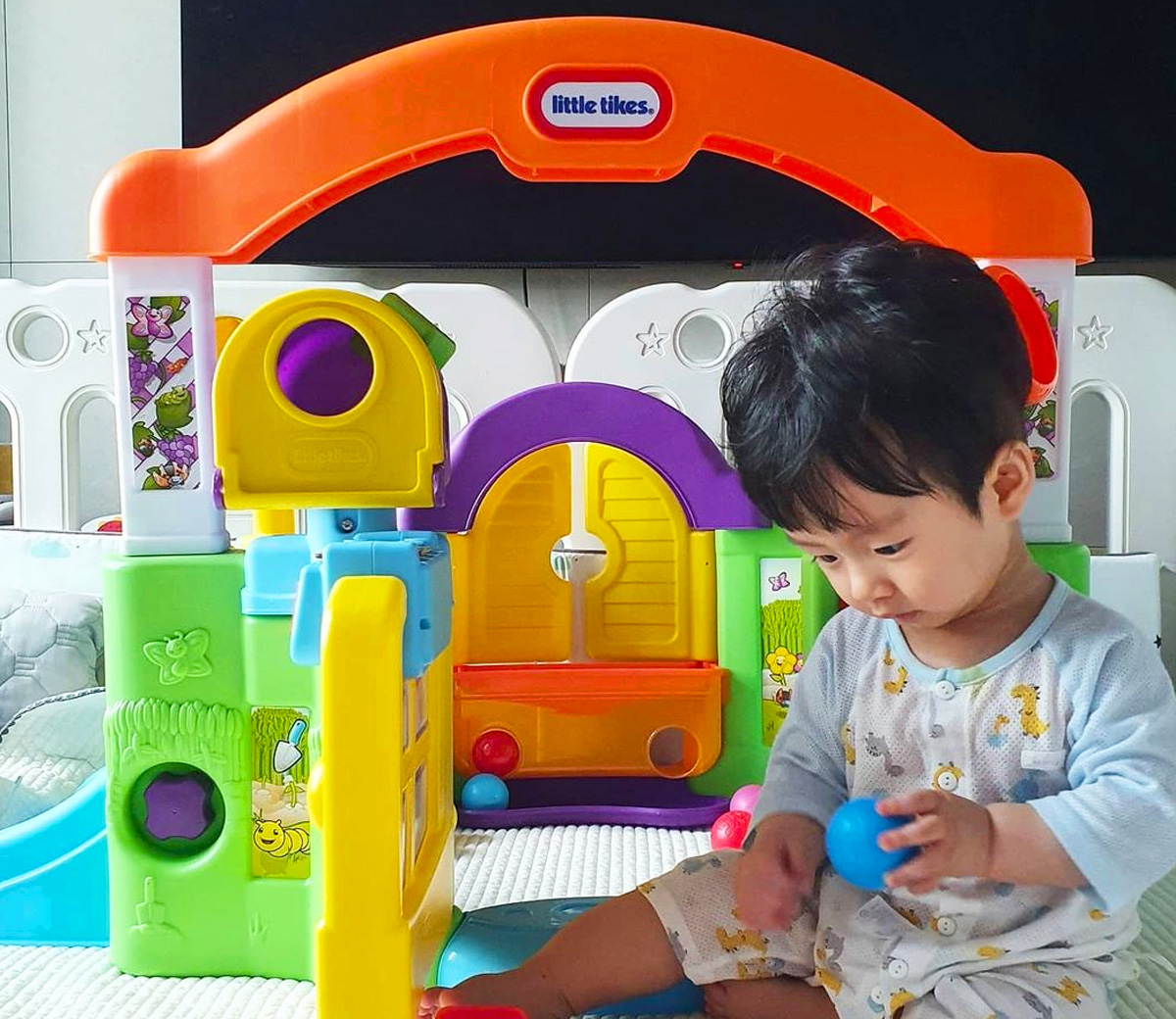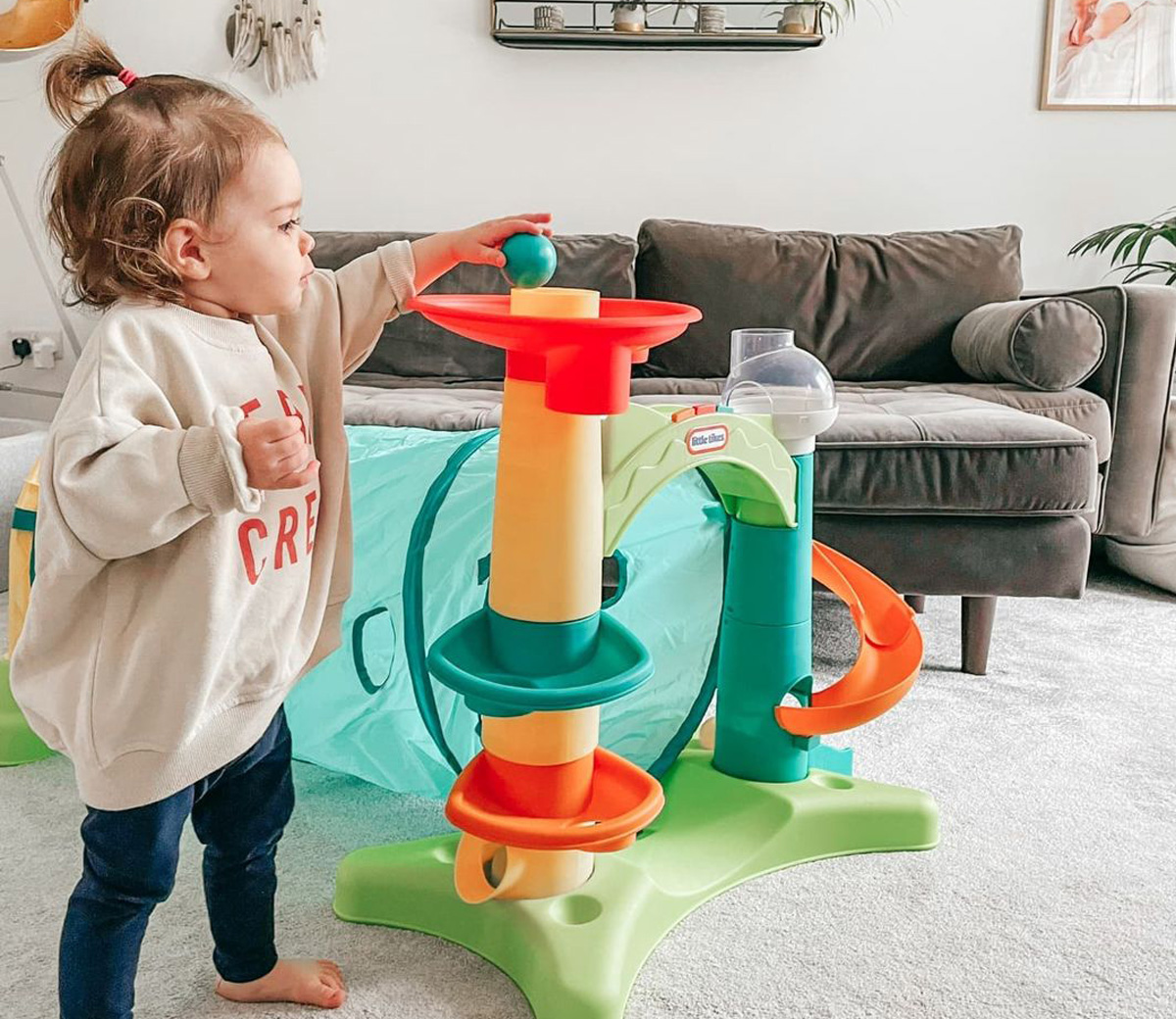Learning through play: the benefit of developmental toys for children
Without realising, children learn all day, every day, through their play.
Not only does play help children develop a wide range of skills, including cognitive, social, linguistic, emotional and physical, it also helps to build their self-esteem, confidence and sense of identity.
Here, we explore how the right toys can fuel children’s imagination, while supporting their developmental growth and setting them up with skills for life.
Physical skills
The first few years of a child’s life are full of exciting physical ‘firsts’, from holding their own head up at around two months old, to running and kicking a ball at aged two. The development of your Little Tike’s physical skills means they can fully explore and interact with the world around them, learning more about themselves and their surroundings in the process.
Toys are a fantastic way of supporting these developments, especially when you choose ones tailored to build upon your child’s current developmental stage. For example, young babies will love to reach out and grab small, eye-catching toys, whereas older babies (at around nine months old) will be hard at work practising those all-important gross-motor skills.
Inspire babies to crawl with the projected coloured lights from Movin’ Lights Monkey. Alternatively, if your child is learning to pull themselves from sitting to standing, the spiral-shaped ball drop of Stand ‘n Dance Starfish is perfect. Your little one might even entertain you with some dancing to accompany music they make on the light-up keyboard!

Cognitive skills
Building on physical firsts, the 3-in-1 Activity Walker (ideal for children aged between nine months to three years old) can encourage your Little Tike to take their first steps. Get the camera ready! With 70 songs, sounds and activities to help boost their brain development, multi-tasking toys like this help children develop their cognitive skills too.
Toys and play naturally provide opportunities for practising different thinking skills, such as imitation, cause and effect, problem solving and symbolic thinking. After all, play is the work of the child, and the more fun they’re having, the more they’ll learn!

Social and emotional skills
Children’s understanding of emotions and social interactions develops naturally through their everyday interactions with you and other special people in their life, as well as through role play.
By encouraging children to act out imaginary scenarios and step into different roles (for example, family members or professions such as teacher, police officer etc), they deepen their sense of sympathy, empathy and responsibility. Interactive toys (like our Learning Activity Suitcase & My First Learning Mailbox) are perfect for fuelling imagination and enabling little ones to become immersed in make-believe scenarios and social roles.
Toys with a gamified element can also encourage those developing social skills. For example, the ‘Games’ mode on our 3-in-1 Sports Zone teaches children to listen and follow directions – a skill that will help children throughout school and into their adult life.

Language skills
Almost any toy can help develop children’s expanding vocabulary and growing language and communication skills. Take the time to describe the toy and what it’s doing as they play with it. Our Count & Learn Hammer is perfect for this. Talk about colours, shapes and sounds of toys with your little one from an early age – this helps their understanding and will mean, in time, they’ll feel comfortable doing the same. For example, if they’re playing with the 2-in-1 Activity Tunnel (perfect for toddlers aged between 12 months and three years), you can teach them words about movement:
“Can you crawl forward through the tunnel?”
“The ball is twisting and turning down the slide.”

Research has shown that music helps with language development too, so musical toys have an added bonus and add an extra element of fun!
Little Tikes is a big believer in the importance of play for development. Toys help children of all ages and stages master skills that will last a lifetime. But, importantly, they’ll help build memories that last a lifetime too.
